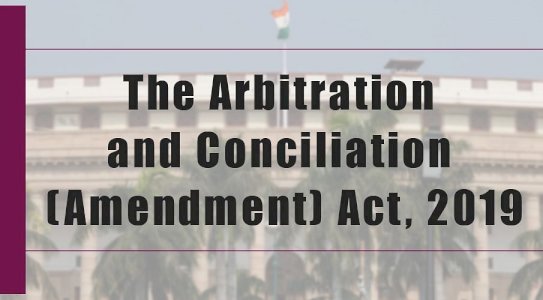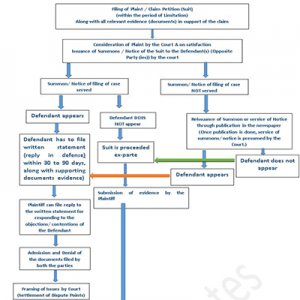About Employment Law-
Almost all companies use a variety of employment laws. Employment law is the field of law that rules the employer-employee connection. Therefore, if the business has more than one employee, then the business likely works employment law. This field is made up of both state and federal laws and includes many various subjects with the common goal to defend workers' rights. For employees, these laws work to:
- Stop discrimination
- Improve health and safety
- Place a minimum expected level for financial help
- Prevent work interruption due to conflicts between labour and management
Employment law includes such things as:
- Worker's compensation
- Employment discrimination
- Labour relations
- Family and medical leave
- Immigration
- Employee benefits
- Social Security
- Wrongful termination
- Occupational safety and health
- ERISA
- Minimum wage
Common Reason of Action in Employment Law-
Employees and work interviewees have some rights and protections, such as the right to not be discriminated against; the right to be given in accordance with the law; and the right to take holiday for family and medical purposes. While national employment laws set the standard, various states have executed workplace laws that give additional protection for employees.
General employee grievances that happen in objections with the Equal Employment Opportunity Commission (EEOC) and/or lawsuits include:
- Discrimination: Employees and even considered employees may not be discriminated against for specific characteristics, such as gender or nationality.
- Sexual Harassment: Considered a form of discrimination, harassment occurs when improper sexual behaviour stops the victim from doing his or her job.
- Wage and Hour: Your employer is lawfully obligated to pay at least the minimum wage, pay overtime when hours exceed 40 per week, and abide by other wage and hour laws.
- Wrongful Termination: Employers may not fire you out of punishment for a legal complaint or for protected characteristics (such as race, gender, pregnancy, etc.).
Employment labour related law-
- For due salary, approach the Labour Commissioner who will help settle this matter with the company If no solution is entered, the Commissioner will hand over the subject to the Court, whereby the employee can create an application to the Labour Court following Section 33 (C) of the Industrial Dispute Act, 1947. If the Court is satisfied with this application, it shall declare a certificate for the amount to the Collector who shall continue to improve the same as an arrear of land revenue. Please make certain that you make such an application inside one year from when the money became due to you from the Company. All other benefits such as Provident Funds, able of being measured in cycles of money, shall also be involved in the amount to be improved. If you are an employee above the managerial level or a manager and above, you can also file a case against the Company in the Civil Court.
- Secondly, with regards to the Company's bankruptcy to file tax returns and non-submission of Form 16, the Income Tax Department has stated that "if the employer does not deduct tax and employee also does not pay his due tax, the ultimate to pay tax rests on the person who has received income. However, if the employee deposits such tax, then the employer will be responsible for interest and penalty for failure to deduct tax".
- It is of utmost significance that you retain and protects any and all of the documents in your possession pertaining to the Company and its investors, including any and all salary slips and/or receipts. For further help, contact the tax Ombudsman in your region, who would be better equipped to help you out with the compulsory procedures, as per the updated Income Tax Rules.
- And lastly, if you have been individually affected by any of the Company's fraudulent activities, you may be entitled to seek penalty. If it can be proved that the Company was included in fraudulent activities because of which you weren't paid your salary, then the following solutions would be available to you.
- Section 447 of the Companies Act, 2013 (which came into effect on 12th September 2013) lays down the specifics of penalty for cheating, wherein the penalty includes a term of imprisonment and fine, which is described further in that section. You can suggest the Registrar of Companies of the supposed fraudulent actions of the Company, and the following measures shall be taken under section 447 of the Companies Act. You can also file a criminal complaint upon the company under the Indian Penal Code.
How to punish to a labour-
- Wrong done [misconduct] by labour.
- Preliminary inquiry.
- Charge sheet.
- Domestic inquiry.
- Show cause.
- Punishment.
Drafting an Employment issue-
- DRAFT OF CHARGE SHEET
- DRAFT OF SUSPENSION LETTER
- DRAFT OF APPOINTMENT OF ENQUIRY OFFICER
- DRAFT OF ENQUIRY PROCEEDING RECORDING
- DRAFT A SHOW CAUSE AFTER INQUIRY
- DRAFT OF LETTER OF DISMISSAL
Suit Procedure before the Labour Court, Tribunal or National Tribunal-
1. While applying an industrial dispute for adjudication to a Labour Court, Tribunal or National Tribunal, the Central Government shall inform the party putting the dispute to file a statement of claim complete with related documents, list of faith and witnesses with the Labour Court, Tribunal or National Tribunal within 15 days of the receipt of the order of reference and also forward a copy of such statement to anyone of the opposing parties involved in the discussion.
(2) The Labour Court, Tribunal or National Tribunal after ascertaining that copies of charge of claim are given to the other side by party raising the conflict shall fix the first hearing on a date not beyond 1 month from the date of receipt of the order of reference and the opposite party or parties shall file their written statement together with records, list of faith and witnesses within 15 days from the date of first hearing and together forward a copy thereof to the other party.
(3) Where the Labour Court, Tribunal or National Tribunal, as the case may be, decides that the party raising the argument though delivered did not forward the copy of the statement of claim to the counterparty or parties, it shall provide direction to the concerned party to provide the copy of the statement to the opposite party or parties and for the said purpose or any other adequate cause, increase the time limit for filing the statement under sub-rule (1) or written statement under sub-rule (2) by an extra period of 15 days.
(4) The party raising a debate may submit a response if it chooses to do so, to the written statement(s) by the relevant party or parties within 15 days from the filing of a written statement by the latter.
(5) The Labour Court, Tribunal or National Tribunal, as the case may be, shall fix a date for evidence within one month from the date of receipt of the statements, documents, list of witnesses, etc. which shall be generally within 60 days of the date on which the dispute was referred for adjudication.
(6) Evidence shall be recorded either in court or on affidavit but in the case of the Affidavit, the counterparty shall have the right to cross-examine each of the deponents filing the affidavit. As the oral exam of each witness proceeds, the Labour Court, Tribunal or National Tribunal shall make a memorandum of the substance of what is being dismissed. While showing the evidence the Labour Court, Tribunal or National Tribunal shall follow the method put down in rule 5 of Order XVIII of the First Schedule to the Code of Civil Procedure, 1908.
(7) On conclusion of Evidence, either argument shall be heard directly or date shall be fixed for arguments / oral hearing which shall not be beyond a period of 15 days from the close of evidence.
(8) The Labour Court, Tribunal or National Tribunal, as the case may be, shall not ordinarily grant an adjournment for a period exceeding a week at a time but in any case not more than 3 adjournments in all at the situation of the parties to the dispute:
PROVIDED that the Labour Court, Tribunal or National Tribunal, as the case may be, for reasons to be recorded in writing, grant an adjournment exceeding a week at a time but in every case not more than 3 adjournments at the case of any one of the parties to the conflict.
(9) In case any party defaults or fails to appear at any stage the Labour Court, Tribunal or National Tribunal, as the case may be, may proceed with the reference ex-parte and choose the reference application in the lack of the defaulting person:
PROVIDED that the Labour Court, Tribunal or National Tribunal, as the case may be, may on the petition of either party filed before the submission of the award cancel this request that the case shall continue ex-parte if it is convinced that the lack of the party was on legitimate areas.
(10) The Labour Court, Tribunal or National Tribunal, as the case may be, shall submit its award to the Central Government within 1 month from the date of arguments/oral hearing or within the period specified in the order of reference whichever is first.
(11) In respect of reference under section 2A, the Labour Court or Tribunal, National Tribunal, as the case may be, shall regularly submit its awards within 3 months:
PROVIDED that the Labour Court, Tribunal or National Tribunal, may, as and when necessary, extend 3 months and shall file its logic in writing to increase the time for submission of the award for the different specified time.]
Some Important Case laws-
- People’s Union for Democratic ... vs Union of India & Others on 18 September 1982
- Jan Mahomed Abdulla Datu vs Datu Jaffar on 6 August 1913
- S.D.Joshi & Ors vs High Court of Judicature at Bombay ... on 11 November 2010
- All India Reporter Karamchari ... vs All India Reporter Limited And Ors on 2 May 1988
- All India Children Care and ... vs Joint Commissioner Of Income Tax on 26 June 2002
No reviews found.

















No comments found for this product. Be the first to comment!